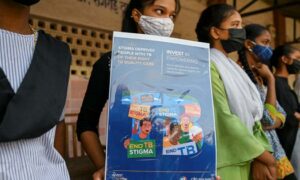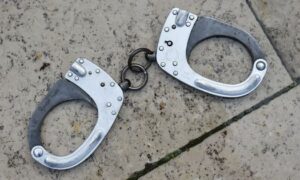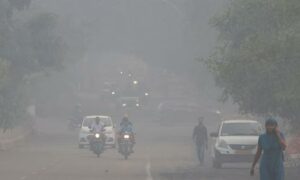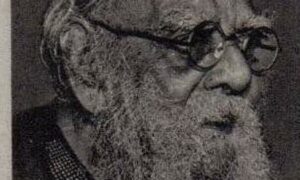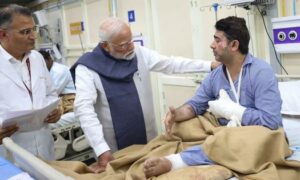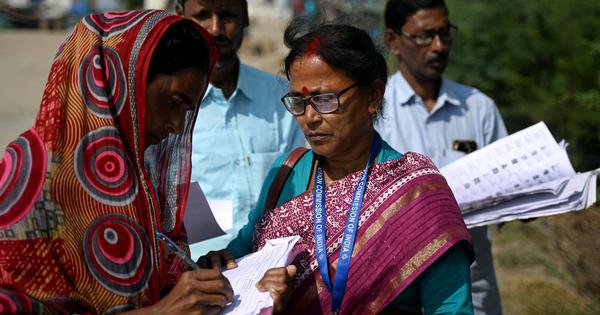
Jitpur Pratham Khanda is one among hundreds of villages in the borderlands between West Bengal’s Cooch Behar and Bangladesh.
When Scroll visited the village on November 2, a pall of gloom hung over it.
Three days ago, Khairul Sheikh, a 63-year-old farmer from the village had tried to end his life by drinking pesticides.
According to his neighbours, he was scared that the Election Commission, which has embarked on a special intensive revision of the state’s electoral roll, would strike his name off the voter list – because of a spelling mistake.
“There is a small mistake in his document,” Manowar Bepari, a 39-year-old mason and Sheikh’s neighbour, told Scroll. “His name is Khairul Sheikh but in the 2002 roll, his name appeared as ‘Khoirul’ Sheikh.”
The 2002 electoral roll will form the basis of the SIR being carried out in West Bengal. All those whose names appear on the roll, or whose relatives are listed on it do not need to furnish additional documentation to be included in the final electoral roll, to be prepared by February 7, 2026.
Bepari said that Sheikh had made efforts to correct the name. “As the SIR is going on, he went from one office to another but he was not able to do it. After that he panicked. He was scared that he would be excluded. He wanted to end his life.”
The SIR carried out in Bihar led to the exclusion of over 47 lakh names on the voter list, sparking fears of disenfranchisement of women and other marginalised groups.
In Sheikh’s village, other residents shared Sheikh’s anxiety.
“My family members and I have our names in the 2002 voter list but we are terrified that our names could be deleted because of spelling mistakes in the documents,” Mizanur Rahman, a 51-year-old daily wager, said. “The spelling of my name on my voter card does not match with the Aadhaar card and voter list of 2002.”
As Scroll travelled across Cooch Behar, especially in its borderlands, we found residents in a state of panic because the exclusion from the voter roll is being perceived as a step towards losing citizenship. Similar fears were expressed by residents of Murshidabad as well.
In fact, the last time the state saw such anxiety was during the publication of Assam’s National Register of Citizens on August 31, 2019. Though the exercise to update a list of legitimate citizens was restricted to Assam, Union home minister Amit Shah’s statements promising a nationwide NRC had spread panic across the state.
This time around, too, the NRC is on several residents’ minds.
“In Assam, it was called NRC. Here it is SIR,” said Abdul Sabur, a 45-year-old construction worker from Chilakhana village, an hour’s drive from Cooch Behar town. “The main aim is to find Muslims and make us ineligible.”
A spate of deaths
The Mamata Banerjee government has publicly opposed the revision of rolls. According to the ruling Trinamool Congress, 17 people have died by suicide because they were “terrified of the harassment under the SIR process”.
“We are witnessing the tragic consequences of the BJP’s politics of fear, division and hate. Within 72 hours of the Election Commission’s announcement of the SIR exercise in Bengal – an exercise bulldozed through at the BJP’s behest – one avoidable tragedy after another has occurred,” the chief minister said.
On November 4, Banerjee hit the streets of Kolkata, leading a protest rally against the SIR.
In Cooch Behar, residents of Pachagarh village in Mathabhanga Assembly constituency held protests over names of 400 voters allegedly missing from the 2002 list, even though they had voted in earlier elections.
“We will not allow the NRC to be implemented in Bengal – neither through the front door, nor through the back door,” Banerjee said. “We will not permit a single legitimate citizen to be branded an ‘outsider’.”
‘If the Centre wants, it will delete your name’
The Muslims residents of border villages near Dinhata, a border town, told Scroll that they had collected land records or documents, residence certificates from the gaon panchayat, ration cards and voter identity cards. Most of them, however, will submit the 2002 voter list as proof of inclusion.
“The voter lists are easily available and less expensive to get. You don’t need to travel to the district headquarters to get hold of them,” said Nabi Bepari, a 57-year-old resident of Chowdhury Hut, a gram panchayat on the Indo-Bangladesh border.
Azizul Sheikh, a 42-year-old fruit vendor from Khitaber Kuthi village, said he had collected his “grandfather’s land documents of 1947” from Kolkata in 2019 because of the panic over NRC.
But even having the documents for SIR has not calmed their fears.
“If the central government wants, your name will be there,” said Azizul. “If they don’t, they will delete your name. That is the fear.”
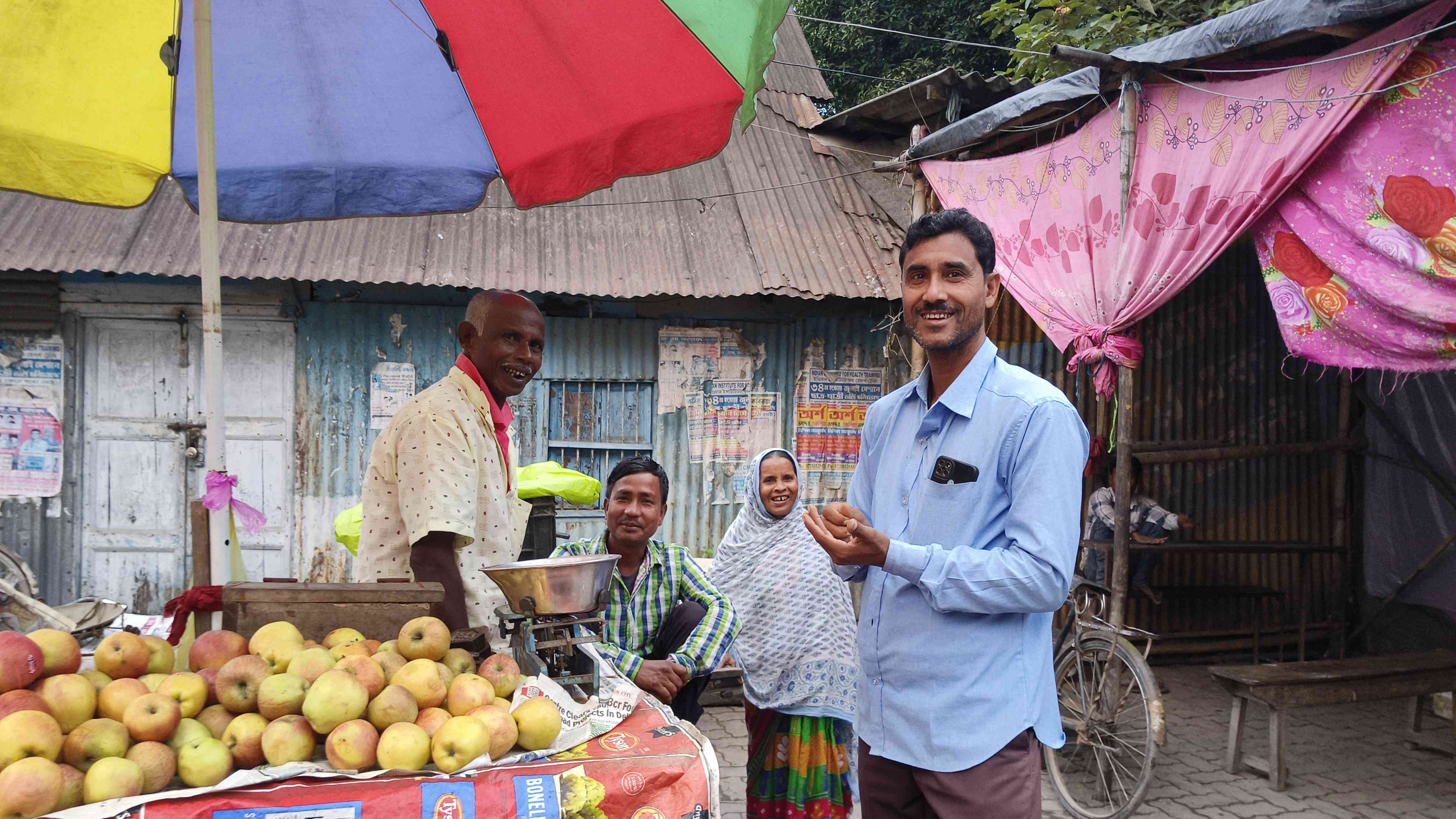
Many residents spoke openly of their mistrust of the Election Commission.
“Our names will be deliberately excluded as the exercise is being carried out by the BJP-led Centre,” Nazrul Bepari, a 55-year-old peasant from Khairul Sheikh’s village said. “The Election Commission is not listening to Mamata Banerjee but it is listening to whatever the Centre and BJP want.”
Manowar Bepari, Sheikh’s neighbour, also recalled the recent crackdown on Bengali migrant workers in BJP-ruled states.
“All these migrant workers, who were detained, were mostly Muslims,” he said. “They are being picked up from their work site, detained, assaulted. Some are being sent to Bangladesh at gunpoint even after having and producing documents. How can we trust the BJP and central government that they will not do the same with the SIR exercise?”
Abdul Latif, a 40-year-old peasant from Khairul Sheikh’s village, said that comments by leaders of the BJP have convinced him that the SIR is mostly designed for the exclusion of Muslims.
“We don’t know why the SIR is being done but BJP leaders have been saying that even for small mistakes in documents, Muslims will be sent to detention centres and Bangladesh or thrown into the sea,” Latif said.
In Murshidabad, too, the SIR has ratched up anxiety about documents.
Liaqut Ali, a 40-year-old migrant worker of Asanpara village in Murshidabad, said there is immense anxiety in his village, especially among older people.
Ali said his father is listed on the 2002 electoral roll, but not his uncles and cousins. “What will happen to them? Will they be declared Bangladeshi and sent to Bangladesh?” Ali said.
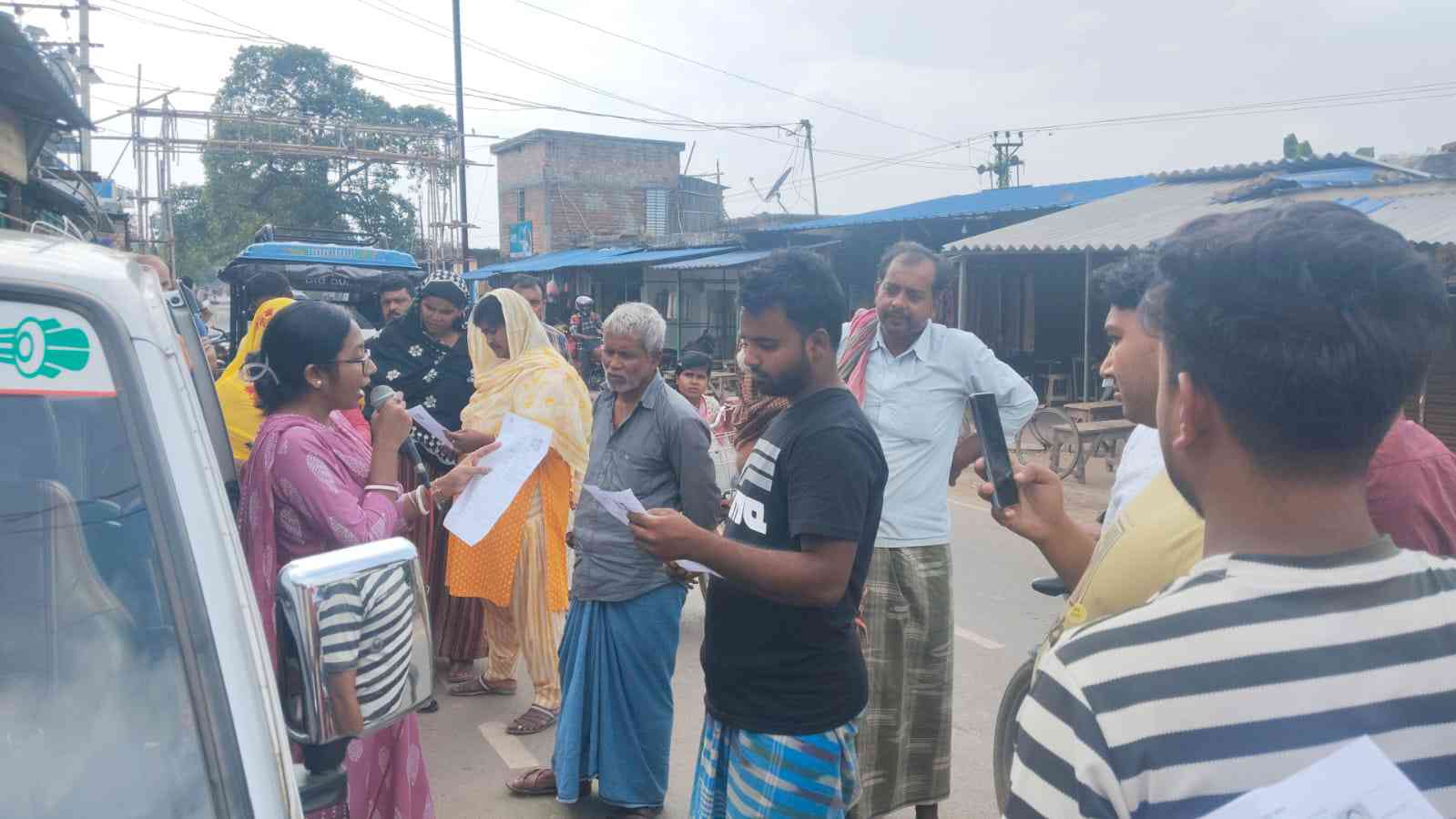
A Murshidabad-based migrant worker group, Migrant Labourer Unity Forum, has started a helpline number and legal cell to help residents.
Asif Faruk, a member of the forum, said 80% of the district’s residents are migrant workers. “We are receiving hundreds of calls from people who are confused and have many questions,” he told Scroll.
As was the case in Bihar, women appear to have had it harder in producing documentary evidence. “What will happen to the women from Jharkhand and Bihar who have married here?” Faruk said. “There are massive spelling errors in their names and surnames. Many Muslim women have different surnames, in one document a person is called Begum, and in a later document, it is Bewa, because she became widowed.”
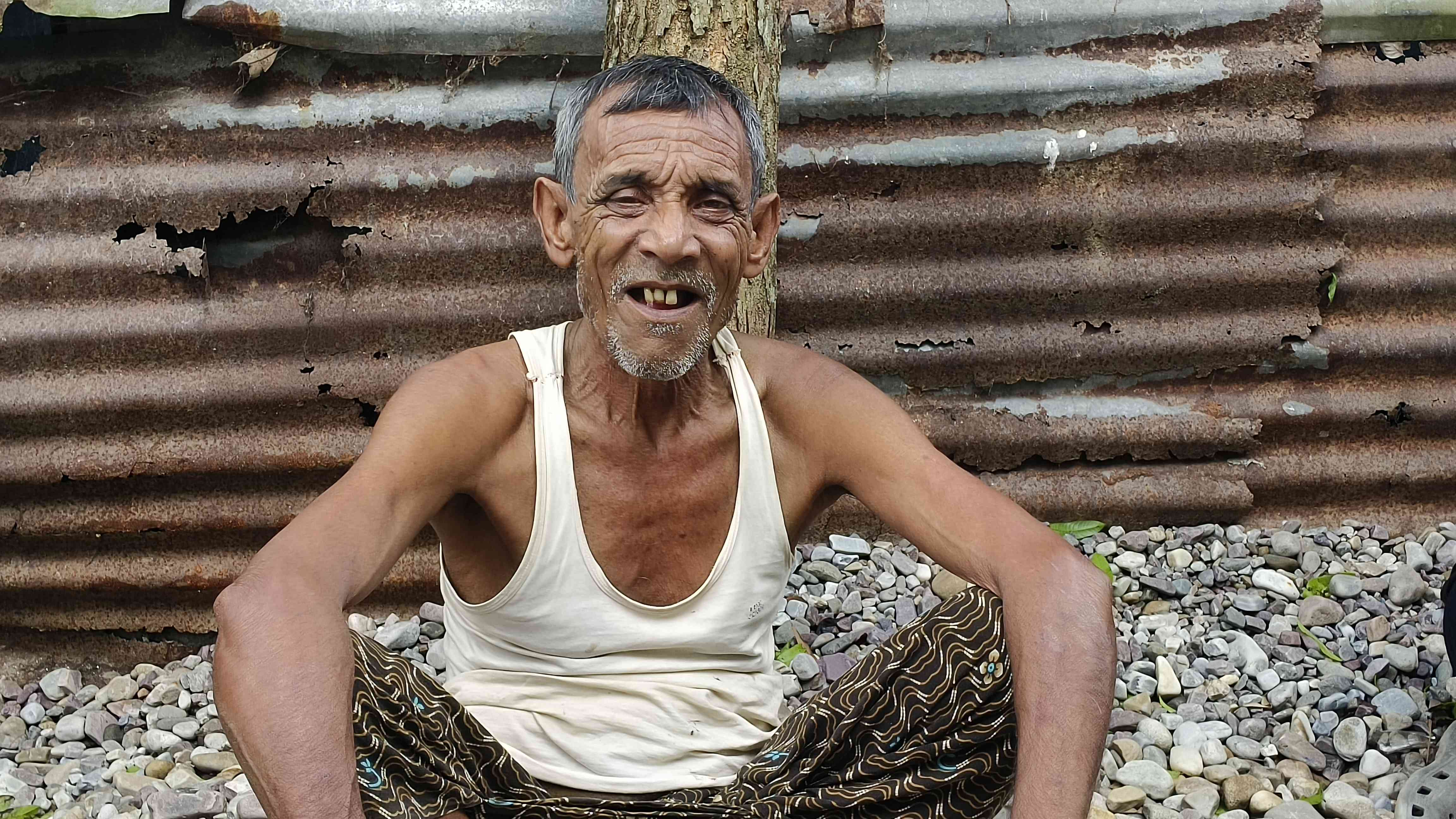
The CAA option
Cooch Behar district, which lies in the north of the state and stretches along the Bangladesh border, is home to Rajbangshis, an ethnic Scheduled Caste group that has historically lived in the region of northern Bengal, Bengali Muslims and Hindus.
Sabur, the resident from Chilakhana village in Cooch Behar, said Hindus who have recently settled in Cooch Behar are also rattled.
Chilakhana area is home to several Hindu migrants and refugees.
“They are very anxious,” a Hindu resident and relative of the recent settlers told Scroll. “They are voters but they don’t have any documents from 2002.”
Bharatiya Janata Party leaders in Cooch Behar are taking pains to assuage their fears.
“Those Hindus who don’t have their name in the 2002 voter list have nothing to worry as they will be given citizenship through the CAA,” Malati Rava Roy, the Tufanganj BJP MLA, told Scroll.
The Citizenship Amendment Act was passed in 2019, and opened a faster path to citizenship for non-Muslim refugees from India’s neighbouring countries.
Roy, who belongs to the Rajbangshi community, claimed that the main objective of SIR is to identify Muslim “infiltrators” and that Hindus have nothing to fear.
“There is no need to fear as BJP is with them. We have been saying repeatedly that we will give citizenship to Hindus who have come from Bangladesh because of fear and persecution,” he said.
Abhijit Dey Bhowmik, who heads the Trinamool Congress unit of Cooch Behar, accused the BJP of misleading Hindu migrants.
“There is no provision in SIR which gives relief to recent Hindu migrants,” Bhowmik told Scroll. “BJP is saying that after rejection in SIR, they can apply under the CAA. But the Election Commission has not said any such thing. This is contradictory.”
Bhowmik also pointed out that many Hindu migrants are reluctant to apply for citizenship through CAA because of the documentary proof the law demands.
The CAA rules say that an applicant will have to first provide documents proving that they arrived in India from Bangladesh, Afghanistan or Pakistan. Second, they will have to provide documents that show they crossed over into India before the Act’s cut-off date of December 31, 2014.
Bhowmik said, “They are scared about identifying themselves as Bangladeshi while applying under CAA.”
The Trinamool Congress leader claimed that in Cooch Behar, the Hindus who have come from “Opar Bangla” – the other side of Bengal – will suffer the most.
“There are so many of them [Hindu migrants] in my locality who are very worried,” Bhowmik said. “They never vote for us but we are trying to bring them into our fold by helping them get included in the SIR.”
Support for SIR
The one group that has backed the Special Intensive Revision are the Rajbangshis, an ethnic group that has historically lived in north Bengal and form one of the biggest Scheduled Caste groups in West Bengal.
For years now, Rajbangshis have opposed the Citizenship Amendment Act arguing that the amended law will turn native Rajbangshis into a “minority”. They have also demanded the implementation of the National Register of Citizens in Bengal.
“If the NRC is not prepared with 1971 as the cut-off date, the sons of the soil will be in minority,” said Bangshi Badan Barman, the general secretary of the Greater Cooch Behar People’s Association, which has been demanding a separate ethnic homeland for Rajbangshis for decades.
Barman, who is also the state government-appointed chairman of the West Bengal Rajbanshi Development and Cultural Board, said that both the Trinamool Congress and the BJP “are doing politics over the SIR”.
“Both of them are creating panic among the people with misleading and provocative statements that lakhs of people will be excluded,” Barman said.
Barman called for identification of illegal migrants irrespective of religion. “Many migrants who have come from Bangladesh are now leaders and call the shots. Till today, people are coming. We are not against them but they have to be identified. That’s why we need both NRC and SIR.”
📰 Crime Today News is proudly sponsored by DRYFRUIT & CO – A Brand by eFabby Global LLC
Design & Developed by Yes Mom Hosting

